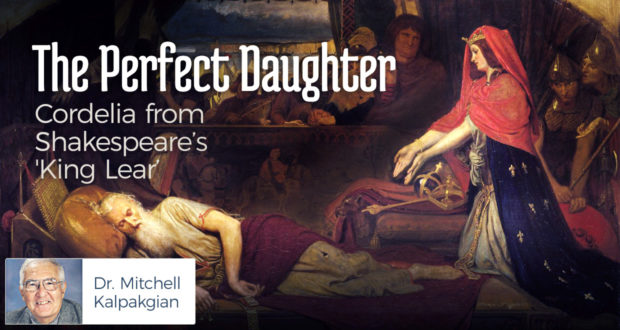Mary Ellen Barrett on instilling a joy of learning in our children and why Seton Home Study School is adding more Read-Aloud books to the Pre-K curriculum.
Read More »
Mary Ellen Barrett December 19, 2017 6,512 Views
Mary Ellen Barrett on instilling a joy of learning in our children and why Seton Home Study School is adding more Read-Aloud books to the Pre-K curriculum.
Read More »Dr. Mitchell Kalpakgian July 30, 2015 13,079 Views
by Dr. Mitchell Kalpakgian | Cordelia, however, cannot lower herself to pretend, dissemble, or exaggerate. Her simple answer to her father’s request for a proof of love is the simple, eloquent, honest truth:
Read More »Dr. Mitchell Kalpakgian May 14, 2015 6,265 Views
by Dr. Mitchell Kalpakgian | In The Tempest, Prospero plays the part of father to his daughter Miranda, ruler of the island he governs with justice and mercy...
Read More »Dr. Mitchell Kalpakgian November 27, 2014 6,798 Views
by Dr. Mitchell Kalpakgian | G.K. Chesterton remarked that fifty percent of education is atmosphere.
Read More »Dr. Mitchell Kalpakgian June 17, 2014 11,243 Views
by Mitchel Kalpakgian | Macbeth learns that daggers draw blood, and murder produces guilt. Man’s conscience and soul are real, alive, and active—especially at night.
Read More »John Clark February 21, 2014 9,966 Views
by John Clark | As I have written previously, on the nights when I’m able, I like to watch the show Jeopardy and try to amaze my kids with my knowledge. (These are the kinds of things you do when you’re old—you get exhausted by failing to impress the world, so you spend your evenings in front of a television set in the hopes of dazzling your offspring.)
Read More »John Clark December 13, 2013 8,772 Views
Someone mentioned to my wife lately that she doesn’t usually read my fatherhood/homeschooling columns because I use too many sports analogies. For instance, over the years, I have written that baseball is like “raspberry sorbet for the mind;” I have said that life is about “how many shots you take, rather than how many baskets you make;” and I recently wrote that being a good father was like being a “hockey goalie,” and so forth.
Read More »Dr. Mitchell Kalpakgian September 12, 2013 7,570 Views
According to proverbial wisdom, “When you do succeed, the chances are that you were not trying too hard in the first place.” This observation appears to contradict the idea of ...
Read More »
 Seton Magazine Catholic Homeschool Articles, Advice & Resources
Seton Magazine Catholic Homeschool Articles, Advice & Resources